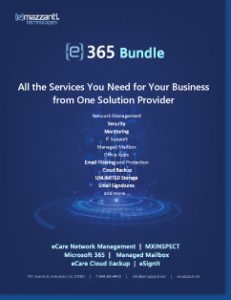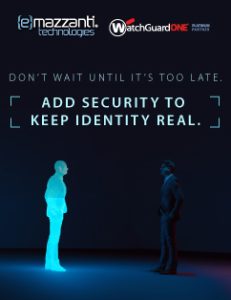By Kim Komando
Reprinted with permission from Microsoft Small Business Center
 How’s this for amazing: A Michigan woman got a request via e-mail from someone billing himself as a Nigerian to help him steal $18 million. All she had to do was set up a bank account in the United States. And she needed to help pay some bribes and fees.
How’s this for amazing: A Michigan woman got a request via e-mail from someone billing himself as a Nigerian to help him steal $18 million. All she had to do was set up a bank account in the United States. And she needed to help pay some bribes and fees.
Pay she did. She is accused of embezzling more than $2 million from her employer between February and August of 2002 to finance the scheme. She planned to pay it back when she received her promised $4.5 million from her Nigerian business partner.
Of course, she never got a cent. She had simply fallen for one of the most common scams on the Internet. She’s been indicted on 13 counts of wire fraud.
Scams like this may well become more successful. Hard times cause desperation among business owners. And desperate owners fall prey to scam artists and their frauds.
My business may be flying today, but I have known those feelings of desperation. How will I pay the rent? How will I get the car fixed? Can I make the payroll?
Do you see yourself here?
You may receive unsolicited advertising that offers you a way out. Be careful! These ads are designed to appeal to the nervous and the hungry, as well as the greedy. If you get an offer that looks attractive, check with the Federal Trade Commission. This site has a lot of information on scams. Also, check with the Better Business Bureau.
If the offer arrives via unsolicited e-mail, that is spam. Offers sent as spam may occasionally be legitimate. But I have never seen one. You can assume that much of the spam you get is sent by crooks, hoping to play on your needs. Here are three examples, accompanied by legitimate alternatives.
1. E-mail us now for a quick loan.
Let’s say you’ve lost a major customer and your cash flow has declined severely. You may be tempted by an offer to find you a loan. If you answer this e-mail, you’ll find the offer requires an upfront fee. Often, the sender says the fee is for development of a business plan. Many small businesses do not have a business plan. And it’s true that you usually need one to get a bank loan. Writing a business plan is a tedious but necessary pain, but no one knows your business better than you. So ultimately, you’ll need to write the plan. Rather than paying an e-mail shyster, you should use software to ease the burden of creating a business plan.
For this job, I’ve used Palo Alto’s $99 Business Plan Pro. It will help you create a great looking document for your banker, while helping you to better understand and grow your business.
If you use Microsoft Office and don’t need any hand-holding, you’ll find a free downloadable fill-in-the-blanks business plan in the Template Gallery. Just search, using “business plan” to find them. Remember, anyone who sends you spam asking for a payment for a loan is most likely a crook. The loan-finder scam has been around since the Bronze Age, at least. The fact that it is on the Internet does not make it more legitimate.
If a bank turns you down for a loan, be sure you understand why. Then check out the Small Business Administration. Small Business Development Centers, which are overseen by the SBA, can give you business guidance.
2. Repair your credit report overnight.
Were you turned down for a loan because of credit problems? Don’t fall for the credit repair scams. These people ask for a payment upfront. In return, you might get mimeographed instructions to pay your bills on time. Well, duh! The fact is, no one can repair your credit. People who say they can do that for a fee are crooks. Don’t deal with them. Once you lose your credit, only time and conscientiousness on your part will restore it. Your bank may be willing to issue you a credit card secured by savings. That will help rebuild your credit rating. The FTC has more information.
There are plenty of legitimate credit counselors locally and on the Web. Don’t expect them to offer you miracles. They can help you manage your debts, but they can’t restore your good name overnight.
3. Make money in your pj’s.
Stay-at-home schemes abound on the Internet. Common sense should tell you that you’re probably not going to make thousands of dollars stuffing envelopes. What happens when you respond to this ad?
You’re offered a kit, for which you must pay $20 or $30. What a surprise! There are no envelopes to stuff! The kit is nothing more than a spam mailing list, which you must send out. It’s the same solicitation you received, except this time the gullible are to send the money to you. If you’re lucky, you won’t land in jail.
Another favorite is the product-finishing proposal. Respondents are asked to assemble Christmas wreaths, sew baby booties or put together something else equally useful. The company agrees to buy the goods, assuming they meet its standards. Most never do. The victim is left to sell the goods. Have you ever tried to sell booties? Difficult, I imagine.
If you need to work at home, there is legitimate help on the Web. Check out Check out these sites: BizyMoms.com, WAHM.com and Home-Based Working Moms (www.hbwm.com). These are sites aimed specifically at stay-at-home mothers, but that any homebound person should find helpful.
The legitimate sites include stories about potential careers, morale-boosting success stories and message boards. The latter are likely to be helpful when you’re down, or stuck on a problem.
There is no end to the scams on the Internet. The e-mail system, and the spam that thrives on it, opened a big opportunity for con artists. The Nigerian scam would seem obvious to most of us, but greed and desperation twists many folks’ judgment. Use your common sense and remember that most free things come with a price.

Carl Mazzanti is Co-Founder and President of eMazzanti Technologies, Microsoft’s four time Partner of the Year and one of the premier IT consulting services for businesses throughout the New York metropolitan area and internationally. Carl and his company manage over 400 active accounts ranging from professional services firms to high-end global retailers.
eMazzanti is all about delivering powerful, efficient outsourced IT services, such as computer network management and troubleshooting, managed print, PCI DSS compliance, green computing, mobile workforce technology, information security, cloud computing, and business continuity and disaster recovery.
Carl Mazzanti is also a frequent business conference speaker and technology talk show guest and contributor at Microsoft-focused events, including frequent prominent roles at the Microsoft Inspire (Worldwide Partner Conference / WPC).
Carl, a serial Entrepreneur, gives back to the community through Entrepreneur teaching engagements at Georgetown University, the company’s ocean wildlife conservation effort, the Blue Project, and Tree Mazzanti.












